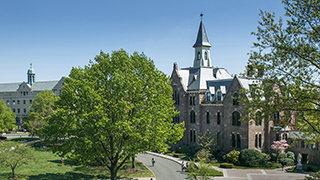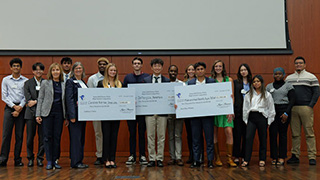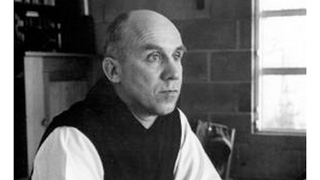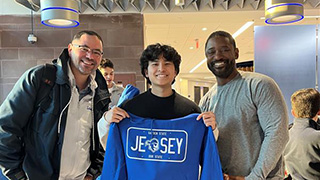Seton Hall University Enhances Innovative Medical Humanities Minor
Thursday, October 3, 2024
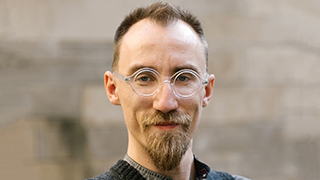
Aleksy Tarasenko-Struc, director of the Medical Humanities Minor
From technology to finance to healthcare, employers across sectors have been recognizing that the humanities—literature and languages, philosophy, religion, history and cultural studies—afford graduates the dispositions, perspectives, analytical and narrative skills that they seek to hire. Just recently on CNBC, billionaire businessman and actor, writer, and producer Ryan Reynolds--star of the Deadpool films—recently affirmed that “storytelling” was the key to his success in his business ventures as well as his Hollywood career. The College of Arts and Sciences at Seton Hall University appreciates the value of humanities learning to careers in business, technology, healthcare and beyond, and offers distinctive interdisciplinary academic programs that integrate humanities methodologies and subjects with cases and experiential learning opportunities directly in these different fields. One of the most popular of these Applied Humanities programs is the Minor in Medical Humanities, which helps aspirant doctors, nurses, physical therapists and scientists, among others, cultivate their ability to listen to patients, empathize, contextualize patient symptoms amidst socioeconomic and cultural differences and communicate effectively and compassionately.
The 18-credit Minor in Medical Humanities gives medical school applicants a distinctive edge, underscoring their emotional maturity and mastery of verbal communication and affirming their advanced reading and writing abilities. It includes a wide range of course options in the humanities and social sciences, including PHIL 2100 Modern Society and Human Happiness, PHIL 2700 The Philosophy of Science, SOCI 2511 Growing Older: The Sociology of Aging, RELS 2511 Christian Values and Health Issues, and PHIL 2175 the Philosophy of Death. To strengthen and expand the Minor, the College of Arts and Sciences recently hired a new Director, Aleksy Tarasenko-Struc, Ph.D., who is a bioethicist with a Ph.D. from Harvard University. Tarasenko-Struc joins the Department of Philosophy as an Assistant Professor. He specializes in moral and social philosophy and has completed a clinical ethics fellowship at Albany Ethics College. His passion for philosophy stems from its ability to foster an environment to engage critically with differing opinions, as well as call into question your own beliefs. During Tarasenko-Struc’s time as a clinical ethics fellow, he saw the first-hand need for understanding ethics and philosophy within the scope of medicine. From both his clinical and theoretical experience, he has learned that there is a necessary connection between theory and practice, and he therefore plans to incorporate more clinical experiences into the Medical Humanities program, potentially including courses in narrative medicine and fieldwork trips to hospitals to engage with patients and practitioners on a human level, so that students can be better prepared to make their healthcare careers meaningful, less stressful and more attuned to the holistic wellbeing of patients. Struc's has learned that without practice, theory alone does not always prepare students for the real-world cases that they will encounter. Applied Humanities programs at Seton Hall bridge theory and practice, so that students can enjoy all the intellectual freedom of a liberal education but also learn hands-on how to make it benefit their careers.
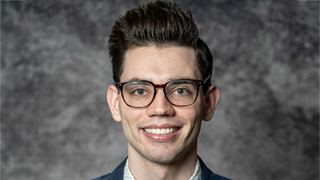
Dr. Joeseph Montessano '19, Harvard Dentistry '24
Joseph Montessano, DMD, graduated Seton Hall with bachelor’s degrees in both Biology and Philosophy and the Honors Program in 2019. Dr. Montessano earned a Master’s in Medical Sciences and a Doctorate of Medical Dentistry from Harvard University. Reflecting on the value of the Medical Humanities Minor to healthcare professionals, Dr. Montessano “appreciates the well-rounded education that studying both biology and philosophy provided him.” Being able to “study more than pure science made learning and applying scientific material much easier.” Overall, Dr. Montessano credits his humanities background for his capacity to excel in graduate school and to connect with patients on a deeper level.
Students interested in the Minor in Medical Humanities should contact Alesky Tarasenko-Struc.
Categories: Arts and Culture, Health and Medicine

